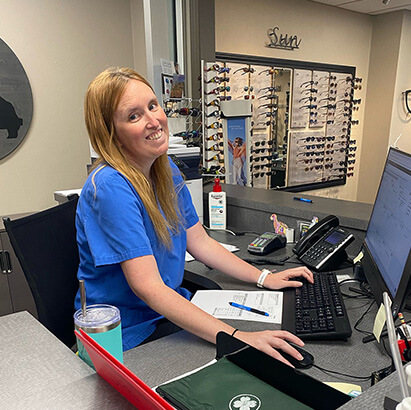Contact Missouri Eye Consultants
At Missouri Eye Consultants, our experts are here and ready to handle all your eye care concerns. No matter what your vision may need, we work hard to deliver clear, comfortable sight.

Contact Us
If you have questions or concerns about your eye care, we want to hear it! Our trusted vision specialists are happy to assist you and answer any potential questions you may have.
If you would like to send us a fax, you can send it to (573) 449-0253.
Emergency Eye Care
Emergencies can happen, but we’re here to help protect your eyesight. If you’re experiencing an urgent eye issue and require treatment, please contact our main office line to see what we can do for you.
Join Our Team
Join Missouri Eye Consultants and become part of a collaborative and innovative team, where your skills and expertise will make a meaningful impact on the lives of our patients. Fill out our form online to get started!

Send Us a Message
7 Convenient Locations
for All of Your Eye Care Needs
Testimonials
“All the personal there are very friendly and more than willing to take good care of you.”
“Everyone was so kind and efficient. Any question I had was answered.”
“Great service, modern equipment, nice personnel, Dr. DeRose is my favorite, but I’ve not seen other doctors there.”
“Went with my daughter, she is six, they kept us together and moved us through the tests pretty quickly. Everyone was very nice and great with kids.”
“Dr. Vanderfeltz and his staff are always courteous and helpful. I would recommend this business to all who need eye care.”
“The people were all so nice and helpful. The office was very clean and organized.”
Get Your Comprehensive Eye Exams with Missouri Eye Consultants Today
